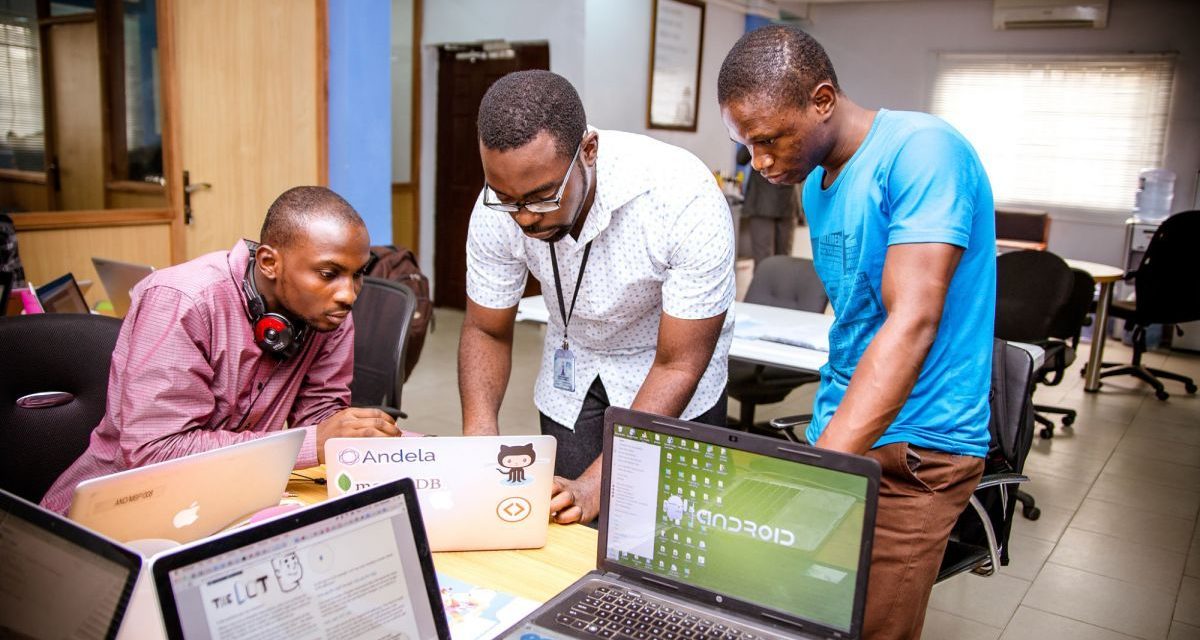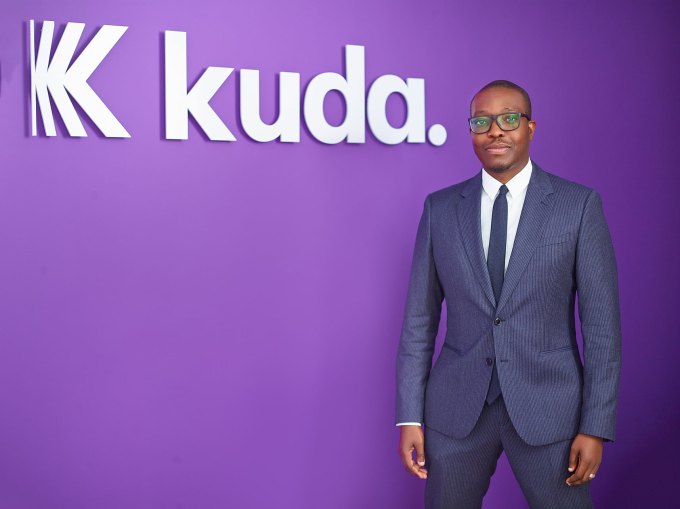What Is The Average Funding Amount Needed To Run A Fintech Startup In Nigeria, Egypt And Other Countries In Africa?
Running a fintech startup in Nigeria, Egypt and other African countries is a tall order when it comes to funding. While no exact amount could be fixed as the standard raise for running a fintech startup in Africa, a historical study of the funding data for fintech startups in Africa gives an insight as to what is expected at every stage of the fintech startup journey. Successful fintech startups, such as Paystack, have however made a remarkable departure from what obtains for a majority of the continent’s teeming fintech startups. After raising a $1.3m seed round, the payments company proceeded to raise only a $10.2m Series A before its acquisition. This is compared to the continent’s unicorns such as Flutterwave, Chipper Cash and Opay, which have at least crossed the Series B stage of funding, and in most cases Series C.

Finding the average funding amount required to run a fintech startup in Africa is also a tough journey as most startups failed to disclose the amounts they raised as well as the relevant stages of the funding, thereby creating uncertainty within various data sets.
Read also:Vodacom Business Africa Goes Trans-Atlantic, Berths in South America
That said, based on the curated data below, the average funding amounts existing fintech startups in Africa have used to propel their growth at every stage of their startup journeys are:
Pre-seed: Between $500,000 — $1,000,000
Seed: Between $1,000,000 — $2,600,000
Series A: Between $5,000,000 — $11,600,000
Series B: $20,000,000 — $33,900,000
Series C: $50,000,000 — $108,300,000

In understanding the methodology behind the figures above, the following facts must be borne in mind:
- There are more seed rounds for fintech startups in Africa, with majority of the seed amounts uncategorized or unreported.
- Fintech startups in Africa raised less pre-seed rounds than seed rounds, and less Series B rounds than Series A. Again, to-date, only about 3 fintechs have reported Series C rounds. This thereby makes the data for pre-seeds, Series B and Series C more accurate.
- It is insightful that apart from JUMO, all fintech startups in Africa that have raised Series C rounds have proceeded to become unicorns, (that is, privately-held companies valued at more than $1 billion).
Find a larger table for the reported fundraising activities of African fintech startups for the years covered below:
| S/N | Name of Company | Base Country of Operations | Description of Startups | Year Founded | Pre-seed | Seed | Series A | Series B | Series C | Uncategorised |
|---|---|---|---|---|---|---|---|---|---|---|
| 1 | MoneyHash | Egypt | Fintech API | Six Figure (2021) | ||||||
| 2 | Maviance | Cameroon | Agency banking; bulk bill payments | 2012 | $3m (2021) | |||||
| 3 | appsNmobile | Ghana | Payment processing | 2015 | $1m(2021) | |||||
| 4 | Chipper Cash | Ghana | International money transfers | 2018 | $6m (2019) $2.4m (2019) | $13.8m (2020) | $30m (2020) | $100m (2021) | ||
| 5 | Mozare3 | Egypt | Agri-fintech | 2020 | Seven figure(2021) | |||||
| 6 | Mono | Nigeria | Fintech API | 2020 | $500k (2020) | $2m (2021) | ||||
| 7 | BFREE | Nigeria | Credit Management/Debt collection | 2020 | $800k (2021) | |||||
| 8 | ArifPay | Ethiopia | Mobile point of sale | 2021 | $3.5m (2021) | |||||
| 9 | Ensibuuko | Uganda | Microfinance for credit unions and SACCOs | 2014 | $1m (2021) $500k (2016) $500k (2017) | |||||
| 10 | Kashat | Egypt | Nano lending | 2020 | $1m (2019) | Undisclosed (2021) | ||||
| 11 | Payflex | South Africa | Buy now, pay later | 2019 | Undisclosed (2021) | |||||
| 12 | Okra | Nigeria | Fintech API | 2019 | $1m (2020) | $3.5m(2021) | ||||
| 13 | BezoMoney | Ghana | Credit and investment fintech | 2019 | $100k (2019) | $200k (2021) | ||||
| 14 | Zeepay | Ghana | Digital assets | 2014 | $940k(2020) | $7.9m(2021) | ||||
| 15 | Numida | Uganda | Credit fintech | 2017 | $2.3m (2021) | |||||
| 16 | FairMoney | Nigeria | Neobank | 2017 | $1.4m (2018) | $11.8m (2019) | $42m (2021) | |||
| 17 | Payhippo | Nigeria | Credit fintech | 2020 | $1m (2021) | |||||
| 18 | AppZone | Nigeria | SaaS for financial institution | 2008 | Undisclosed (2018) | $10m (2021) | ||||
| 19 | Paymob | Egypt | Mobile wallet | 2015 | $18.5m(2021) | |||||
| 20 | HUB2 | Ivory Coast/Reunion | B2B payments for e-merchants | 2018 | $296k (2018) | $1.8m (2021) | ||||
| 21 | Bankly | Nigeria | Digitizing informal thrift collection | 2018 | $2m (2021) | |||||
| 22 | NowPay | Egypt | Financial wellbeing network for workers | 2018 | $600k (2019) | $2.2m (2020); | Pre-Series A (Undisclosed; 2021) | |||
| 23 | Nomanini | South Africa | Fintech connecting merchant with distributors | 2011 | $500k (2021) Undisclosed (2015); $4m (2019) $1.5m(2021) | |||||
| 24 | Adumo | South Africa | Payments processing | 2019 | $15m (2021) | |||||
| 25 | Dayra | Egypt | Fintech API | 2020 | $3m(2021) | |||||
| 26 | Flutterwave | Nigeria | Merchant Payments/ ecommerce | 2016 | $120k (2016) | $20m (2018) | $35m (2020) | $170m(2021) | ||
| 27 | Stitch | South Africa | Fintech API | 2019 | $4m(2021) | |||||
| 28 | MortgageMarket | South Africa | Home loan fintech | 2019 | $481k (2019) | $684k | ||||
| 29 | Popote | Kenya | Remote inventory payments for business owners | 2017 | Undisclosed (2021) | |||||
| 30 | OZE | Ghana | Credit fintech | 2017 | $700k (2021) | |||||
| 31 | Cassbana | Egypt | AI-powered credit-scoring fintech | 2020 | $1m (2021) | |||||
| 32 | OnePipe | Nigeria | Fintech API | 2019 | $950K(2020) | |||||
| 33 | Zeal Rewards | Egypt | Payments rewards | 2019 | 6-figure (2020) | |||||
| 34 | Credpal | Nigeria | Credit | 2018 | $37k (2018) | $1.5m (2021) | ||||
| 35 | Pass | Nigeria | Check-out payment solution for ecommerce | 2020 | Undisclosed (2020) | Undisclosed (2021) | ||||
| 36 | FinChatBot | South Africa | Chatbots for financial companies in South Africa. | 2016 | $1.6m (2020) | |||||
| 37 | Makeeba | Cape Verde | POS payments/ Money transfer | $2.8m (crowdfunding, 2020) | ||||||
| 38 | Flick | Egypt | Cross-border money transfer | 2020 | $1m(2021) | |||||
| 39 | Kashier | Egypt | Enables payments for ecommerce startup | 2019 | Six-figure (2020) | |||||
| 40 | ElGameya | Egypt | Savings for credit union fintech | 2018 | Six-figure (2020) | |||||
| 41 | Eversend | Uganda | Cross-border money transfer/currency exchange | 2017 | $1m (Crowdfunding; 2020) | |||||
| 42 | OnePay | Morocco | Distributor/ aggregator | $409k (2020) | ||||||
| 42 | Franc | South Africa | Investment robo-advisor | 2018 | $300k(2020) | |||||
| 43 | ProfitShare Partners | South Africa | B2B credit fintech | 2017 | $5.8m (2020); $1.7m (2019) | |||||
| 44 | Jamborrow | Nigeria | AI-powered Robo advisor/blockchain integrated payment | 2018 | $400k (2020) | |||||
| 45 | Khazna | Egypt | Mobile finance services | 2019 | Undisclosed (2020) | |||||
| 46 | JUMO | South Africa | Payroll loans to government and corporate workers | 2014 | $3m (2018) | $64.5m (2018) | $55M (2020) | $34.2m (2015; 2016; 2017) | ||
| 47 | Aella | Nigeria | Blockchain finance | 2015 | Undisclosed (2017) | $10m (2020) | ||||
| 48 | Migo | Nigeria | Credit scoring | 2014 | $13m (2018) | $20m (2019) | ||||
| 49 | Asilimia | Kenya | B2B payment infrastructure | 2017 | $350k (2019) | |||||
| 50 | Opay | Nigeria | $50m (2019) | $120m (2019) | ||||||
| 51 | PalmPay | Nigeria | Financial payments | 2019 | $40m (2019) | |||||
| 52 | Zazu | Zambia | Digital banking | 2017 | $1.5m (2019) $218k (crowdfunding) | |||||
| 53 | uKheshe | South Africa | Micro transactions, allowing card users to pay and get paid. | 2015 | $500k (2019) | $2m(2020) | ||||
| 54 | Payitup | Zimbabwe | Processes bill payments | 2017 | $13m (2019) | |||||
| 55 | TeamApt | Nigeria | Agency banking | 2015 | $5.5m (2019) | Undisclosed (2021) | ||||
| 56 | Yalla Xash | Morocco | Mobile transfer | 2017 | $675k (2021) | |||||
| 55 | AZA Finance (BitPesa) | Kenya | Currency trading | 2013 | $1.1m (2018); $650k (2014) | $6.7m (2017) | $20m(2021); $5m (2018) | $15m (2019) $1.5m (2016) | ||
| 56 | Telda | Egypt | Digital bank | 2021 | $5m (2021) | |||||
| 57 | SpacePointe | Nigeria | PoS | 2014 | $1.2m (2016) | |||||
| 58 | Paystack | Nigeria | Payment solution for businesses | 2015 | $1.3m (2016) | $10.2m (2018) | ||||
| 59 | Yoco | South African | Card payment/PoS | 2013 | $1.7m (2014) | $3m (2017) | $16m (2018) | $2.4m (2015) | ||
| 60 | Drive Revenue | South Africa | Cloud-enabled financial management system. | 2013 | Undisclosed (2017) | |||||
| 61 | Awamo | Uganda | Microfinance | 2015 | $550,000 (2015) | $1.7m (2017) | ||||
| 62 | Wala | South Africa | Blockchain-powered financial services | 2015 | Undisclosed (2017) | |||||
| 63 | PiggyVest | Nigeria | Automated savings platform | 2016 | $1.1m (2018); $50k (2017) | |||||
| 64 | Lidya | Nigeria | Credit fintech | 2016 | $1.25m(2017) | $6.9m (2018) | Pre-Series B $8.3m (2021) | |||
| 65 | Thank U Cash | Nigeria | Reward-based fintech | 2018 | Undisclosed (2018) | Undisclosed (Pre-Series A, 2021) | $410k (2020) Undisclosed (2018) | |||
| 66 | Paga | Nigeria | Mobile payments | 2009 | $9m (2012) | $25m(2018) | $2m (2012) $700k (2010) | |||
| 67 | KudiGO | Ghana | Mobile-based retail, payments | 2017 | $490k (2019) | |||||
| 68 | Kudi | Nigeria | Money services for the underbanked | 2016 | $1.7m (2017) | $12.6m (2019) | ||||
| 69 | Kuda | Nigeria | Digital bank | 2018 | $1.6m (2019) | $10m (2020) | $25m (2021) | |||
| 70 | Julaya | Ivory Coast | B2B digital financial transactions, e.g. mobile money, etc. | 2018 | $550k (2019) | |||||
| 71 | Trove | Nigeria | Micro-investing | 2018 | Undisclosed (2020) | |||||
| 72 | LifeCheq | South Africa | Expert financial advisory | 2015 | Undisclosed (2020) | |||||
| 73 | SmartWage | South Africa | Salary payments | 2019 | $347k(2020) | |||||
| 74 | TradeSafe | South Africa | Escrow | 2013 | Undisclosed (2020) | |||||
| 75 | Kwaba | Nigeria | Rent-splitting | 2019 | Undisclosed (2020) | |||||
| 76 | Blueloop | Nigeria | Crypto-based payments | 2019 | $77k (2020) | |||||
| 77 | Cowrywise | Nigeria | Wealth management /financial planning | 2017 | $220k (2018) | $3m (Pre-Series A, 2021) | ||||
| 78 | Raise | Kenya | Crowdfunding | $25k (2020) | ||||||
| 79 | Afriex | Nigeria | Zero-free transfers | 2019 | $1.2m (2021) | |||||
| 80 | Zoona | South Africa | Payments processing | 2012 | $500k (2012) | $4m (2012) | $15m (2016); Undisclosed (2016) | $2.4m (2014) $1m (2017) | ||
| 81 | Alternative Circle | Kenya | Mobile-based credit facility. | 2017 | $1.1m (2017) | |||||
| 82 | Entersekt | South Africa | Authentication systems for online and mobile banking services | 2018 | Undisclosed (2017) | |||||
| 83 | InTouch | Senegal | Aggregation of payments | 2014 | $11.8m (Undisclosed) Undisclosed (2021) | |||||
| 84 | i-Pay (Ozow) | South Africa | Bank-to-bank automated and instant electronic funds transfers | 2014 | Undisclosed (2017); Undisclosed (2019) | |||||
| 85 | Mines | Nigeria | Credit-as-a-service | 2014 | $2.2m (2017); $1m (2017) | $13m (2018) | $20m (2019) | |||
| 86 | Pezesha | Kenya | P2P Lending | 2016 | $1.1m (2018) | |||||
| 87 | Wallet.ng | Nigeria | Smart banking | 2018 | Undisclosed (2018) | |||||
| 88 | Allpro | Nigeria | End-to-end lending for schools | 2018 | $190k (2019) | Undisclosed (2018) | ||||
| 89 | Accounteer | Nigeria | B2B accounting | 2015 | Undisclosed (2018) | |||||
| 90 | Riby | Nigeria | Fintech for credit unions /P2P lending | 2016 | Undisclosed (2018) | |||||
| 91 | Payabill | South Africa | Digital Lending | 2017 | Undisclosed (2019) | |||||
| 92 | Expensya | Tunisia | Spend management | 2014 | $20m (2021) | Undisclosed (2016); $1.1m(2017) $4.5m(2018 | ||||
| 93 | OneFi | Nigeria | Lending | 2012 | $5m (2019) | |||||
| 94 | MerQ | Egypt | Chatbot for fintech | 2018 | Undisclosed (2019) | |||||
| 95 | XPay | Egypt | Bill payments | 2018 | $250k (2018) | |||||
| 96 | Lulalend | South Africa | Lending | 2014 | Undisclosed (2016) | $6.5m (2019) | ||||
| 97 | Ozow | South Africa | ||||||||
| 98 | SOS Credit | Morocco | Financial services broker | 2016 | Undisclosed (2019) | |||||
| 99 | My-iMali | South Africa | Digital wallet | 2018 | Undisclosed (2019) | |||||
| 100 | Carbon | Nigeria | Consumer lending | 2012 | $750k(2014) | $10m (2015) | $5m (2019) | |||
| 101 | Airbuy | South Africa | Ecommerce payments enabler | 2016 | $12k (2018) | |||||
| 102 | MoneyFellows | Egypt | Digitizes chit funds/ SACCOS/Esusu | 2015 | $600k (2018) | $4m (2020) | $1m(2019) | |||
| 103 | Planet42 | South Africa | Credit scoring for mobility finance | 2017 | $2.6m (2020) | $10m (2020); $2.4m(2019) $2.6m (2020) $1m (2018) $950k (2019) $593K (2018) | ||||
| 104 | Peach Payments | South Africa | Payment integration for ecommerce | 2012 | $61k (2013) | Undisclosed (2021) | ||||
| 105 | CompariSure | South Africa | Chatbot for fintech | 2017 | Undisclosed (2020) | |||||
| 106 | Franc | South Africa | Investment robo-advisor | 2018 | $300k (2020) | |||||
| 107 | Paymenow | South Africa | Employee benefits/early access to salaries | 2019 | $230k (2020) | Undisclosed (2020 | ||||
| 108 | Wallets Africa | Nigeria | Send and receive money via mobile | 2018 | ||||||
| 109 | Zagace | Kenya | Software for fintech | 2013 | $1.7m(2015); $15m (2017) | |||||
| 110 | ImaliPay | Nigeria | AI-powered fintech for the gig economy | 2020 | Undisclosed (2021) | |||||
| 111 | Diool | Cameroon | B2B payments for merchants | 2015 | $1.2m (2020) | $3.5m(2021) | ||||
| 112 | Fawry | Egypt | Electronic payment network | 2008 | Undisclosed (2008) | $100m(2015) Undisclosed (2017) $22m (2019) | ||||
Fintech funding Nigeria Africa Fintech funding Nigeria Africa Fintech funding Nigeria Africa Fintech funding Nigeria Africa Fintech funding Nigeria Africa
Charles Rapulu Udoh

Charles Rapulu Udoh is a Lagos-based lawyer who has advised startups across Africa on issues such as startup funding (Venture Capital, Debt financing, private equity, angel investing etc), taxation, strategies, etc. He also has special focus on the protection of business or brands’ intellectual property rights ( such as trademark, patent or design) across Africa and other foreign jurisdictions.
He is well versed on issues of ESG (sustainability), media and entertainment law, corporate finance and governance.
He is also an award-winning writer









